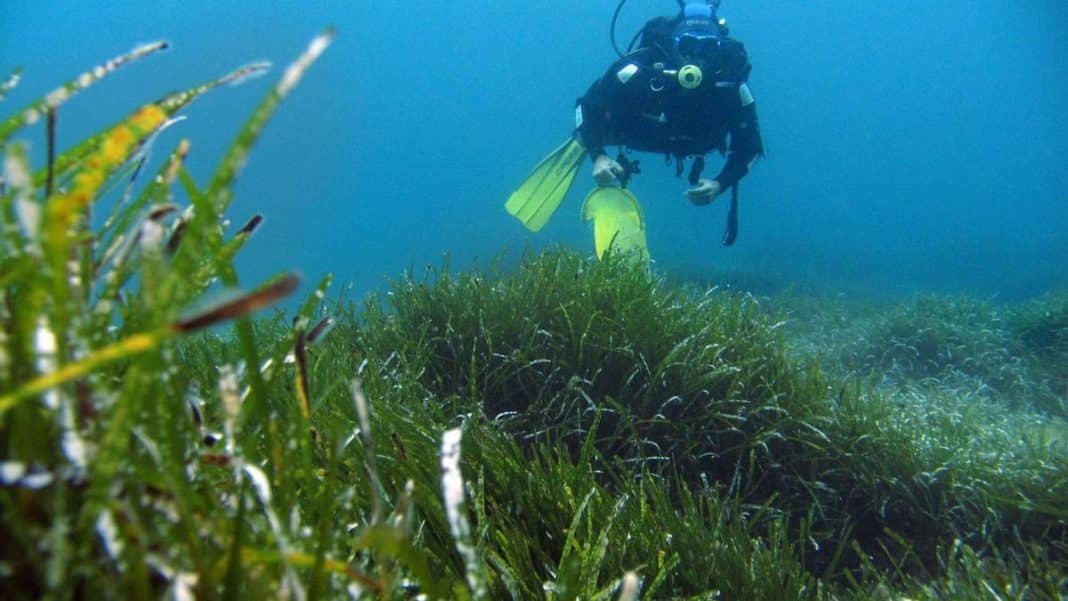“A tropicalization of the Mediterranean is being observed. By the year 2050-2060, if sea temperature continues to rise at the current rate, the functional capacity of posidonia will have disappeared if nothing is done, as from 28° or 29° degrees, the plant dies”. This is one of the conclusions of the fourth of the five sessions that make up the Citizens’ Climate Assembly of Mallorca, held on Saturday in Sineu. The 60 citizens who are part of this pioneering project in the Balearic Islands were able to listen to the explanations of experts such as Biel Jordà, Joan Rita, Nuria Marbà, Elena Baraza, Alfredo Baron and Paz de Vilchez on terrestrial and marine ecosystems, water and agriculture. Natural systems that, on the islands, are seriously threatened by climate change.
Maintaining posidonia is crucial
According to scientists, the temperature in the Mediterranean has continually risen since the 1980s at an average of almost half a degree per decade. Maintaining posidonia meadows is crucial in terms of protecting our coasts, but it is estimated that in 100 to 150 years there will be no place in the Mediterranean where posidonia can survive. “Without posidonia, the coasts are very vulnerable to storms, and we could suffer impacts similar to those of the Glòria storm every few years,” said Jordà.
Ecosystems are the main mechanism for preventing climate change, both because they help store the carbon we emit (mitigation), and because they help us adapt to changes that are already inevitable (availability of water, food, reducing the chances of fires…).
Water availability is one of the factors that will most jeopardize the Balearic Islands’ ability to face the future, given the predictions of climate change in the Mediterranean basin and on the islands in particular.
Jordà and Marbà added that climate change poses a threat to some key marine ecosystems in the Mediterranean mainly due to temperature increase. Native and endemic species (which have evolved in the Mediterranean) have a negative response to warming and after heat waves experience mass die-offs. From 2015 to 2019 we have had many heat waves and mass mortalities of all species have been observed.
Rita also showed images observing the receding of beaches due to the rise in sea levels. “Sea levels are also registering a continuous rise. There are beaches like Cala Blanca, in Menorca, where the beach has receded 60 meters compared to how it was in the 50s,” the biologist maintained.
“The rise of the sea level will have consequences on the beaches and tourist areas. Tourists will not have to leave the hotel to go to the beach, the water and sand will be in the hotel lobby,” said the geologist and hydrogeologist, Alfredo Baron.
Baron also recalled that extreme weather phenomena will be more frequent. “It will raise the sea level and cause coastal erosion. Flood zones are areas that will flood. The water, from time to time, takes out the property titles and says ‘this is mine’ and floods it,” stated the geologist.
Dragonera beat all buoy network records this summer with 31,36º
The water temperature in the Mediterranean exceeded 31 degrees Celsius (ºC) in the June-August quarter, according to data collected by the Puertos del Estado buoy network, which detected a historic high at the sa Dragonera buoy of up to 31.36ºC on August 24th.
For its part, the Atlantic did not reach historical records but the maximums of the months of July and August in the Cantabrian and Canary Islands were exceeded. September was also marked by persistent high sea temperatures.
For the full article, please visit Diario de Ibiza website here.

